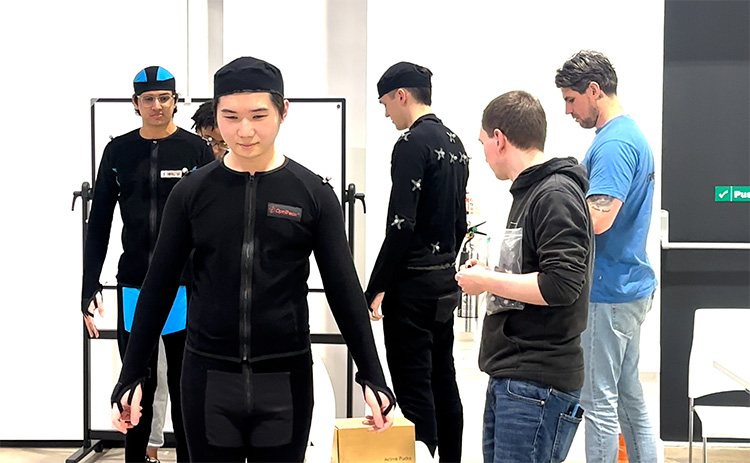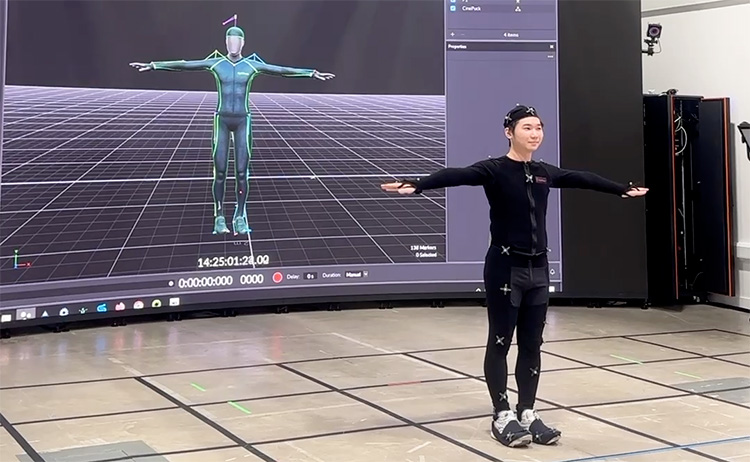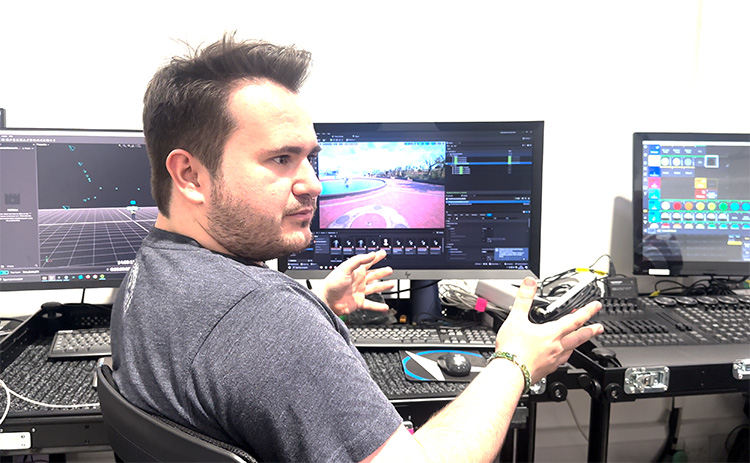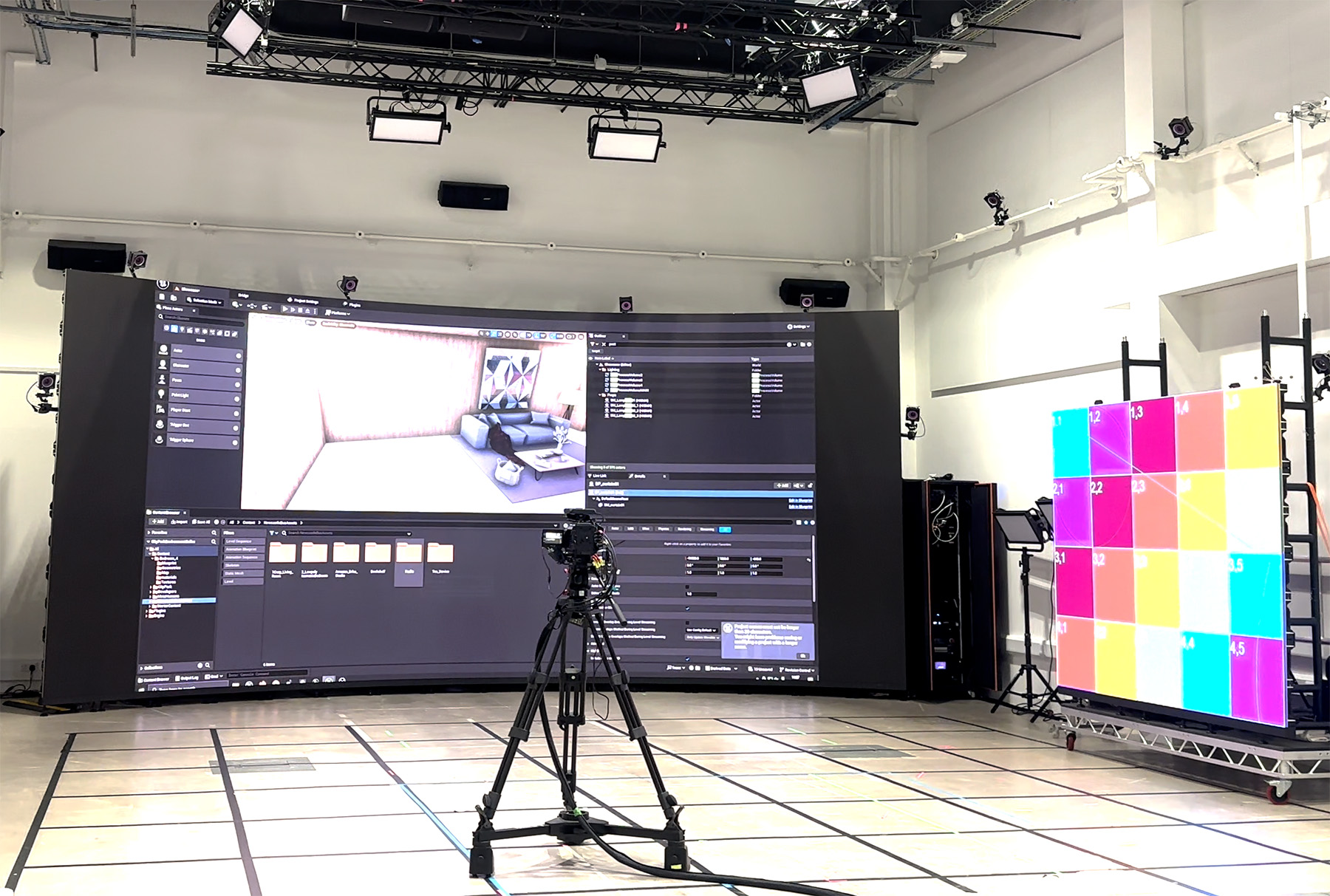Students Focus on Addressing Wellbeing for the Ageing Population in the Region
Newcastle University Business School recently teamed up with The National Innovation Centre for Ageing (NICA) to deliver an impactful real-world learning experience focused on improving wellbeing in the region.
25 June 2025
Newcastle University Business School students from three different MSc programmes – Entrepreneurship, Innovation and Sustainability, Digital Business, and Sustainability Management – have been exploring one of the region’s most pressing societal challenges: how to improve the wellbeing, independence, and social connection of older adults. Their work takes place through a pioneering elective module, ‘Digital Transformation for Social Good.’
At the heart of the module is a commitment to learning through doing, where students engage in hands-on, outward-facing activities.
This year, the Business School worked in collaboration with the National Innovation Centre for Ageing (NICA) and Thoughtworks on this consultancy-style module. Students worked directly with external organisations to design and prototype digital services aimed at delivering real community impact in the North East of England.
Integrated, hands-on learning
This year’s project centred on the question: “How might we design a digitally enabled service that empowers older people in the North East of England to improve their wellbeing, independence, and social connections as they age?”
It included a Digital Service Jam led by Senior Innovation Consultants at Thoughtworks, and user research at Newcastle City Library, where students applied service design principles to explore real user needs.
The immersive learning continued at PROTO’s virtual production studio, where students created compelling two-minute promotional videos to bring their service concepts to life. These videos formed part of their final presentations, which were viewed by Lisa Opie – Visiting Professor of Innovation and Enterprise at Newcastle University Business School and Managing Director of Ubisoft Reflections.


The module integrated critical elements such as design thinking, strategic consulting, and immersive technologies to equip students with in-demand skills sought after by employers. From understanding ethical research practices to delivering actionable business cases, students were prepared to tackle real-world complexity head-on.
After viewing the students’ final presentations, Lisa said: "In our industry, the rapid pace of technological change is driving a need to focus on continuous learning. We will need to be perpetually curious if we’re to define fact from fiction in an increasingly AI-informed world. We’ll also need better management and leadership skills at all levels within our teams, to support the changes we face. Critical listening, challenging conversations, and fair and constructive feedback are all vital to attracting and retaining talent in a competitive market. Problem solving is critical too – creative thinking that establishes connections and relationships across disciplines, doing what humans can uniquely do.
“I’m really impressed with the Digital Transformation for Social Good module at Newcastle University Business School. It posed a critical social and economic challenge and supported students to engage with industry to find solutions. They needed to think outside of the box, be curious, communicate effectively and work as a team. All human skills that industry desperately needs."
A partnership that makes a difference
Through their work with NICA, and with guidance from Thoughtworks consultants and School colleagues, students explored innovative, user-centred solutions to this complex issue. Their final deliverables – a 3,000-word consultancy report and a 15-minute group presentation – offered not just academic value but potential strategic support for NICA’s future initiatives.
This initiative reflects a growing movement in business education: a shift from passive learning to active contribution. By combining creativity, empathy, and technology, students not only deepened their learning but also contributed to Newcastle University Business School’s vision to be a community creating a better, more responsible, inclusive, and just future for all.

As the pace of digital transformation accelerates, the need for human-centred, ethically sound, and socially impactful innovation has never been greater. The Digital Transformation for Social Good module stands as a testament to how universities can lead by example – cultivating talent, forging partnerships, and delivering change where it’s needed most.
Dr Rebecca Casey, Co-Director of Student Recruitment and Module Leader, said: “It is a joy to witness our students transform through this immersive learning experience. Working alongside Thoughtworks, they gained hands-on expertise in contemporary service design, rapidly prototyping and testing their ideas with the wonderfully insightful communities of the North East.
“These real-world interactions consistently challenge and elevate student thinking, enabling them to apply their skills meaningfully and identify sustainable digital innovations that drive social good.”
